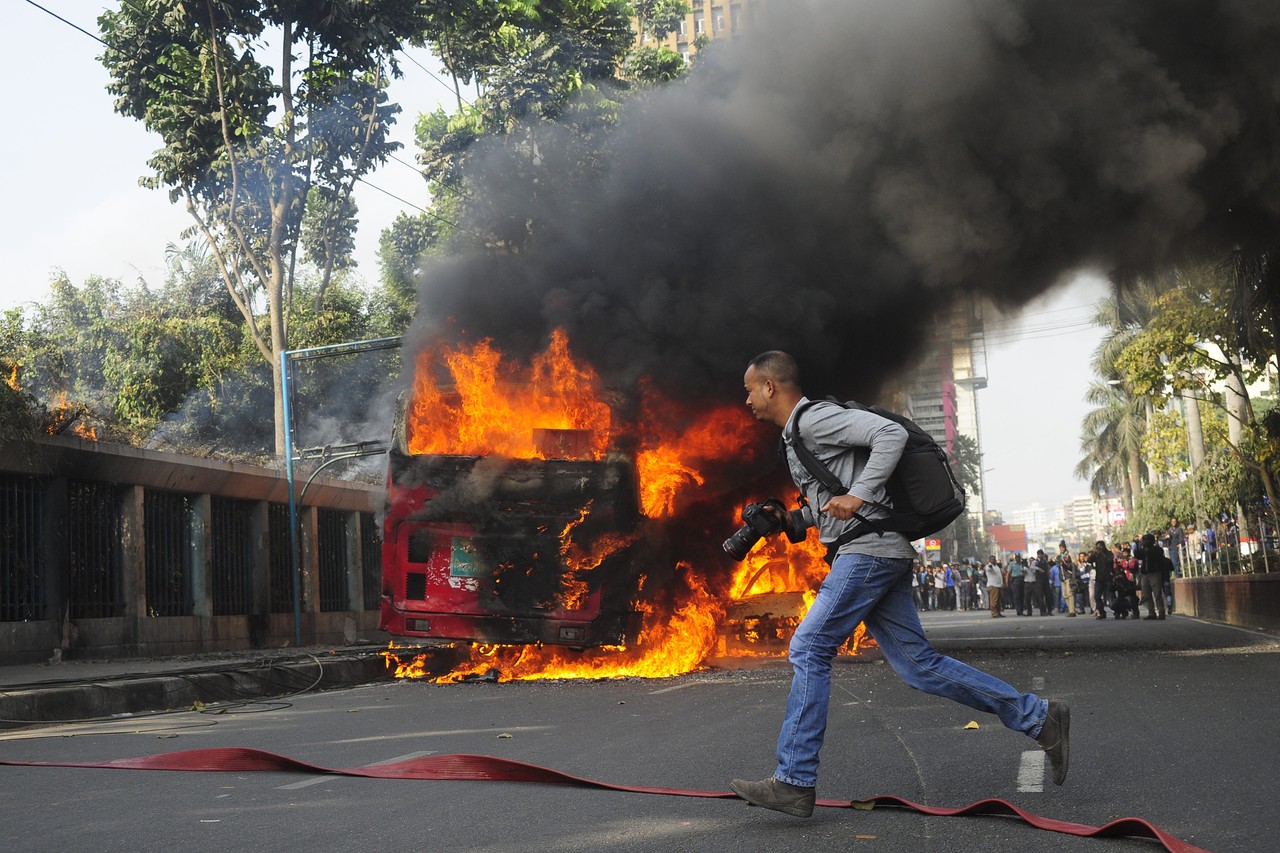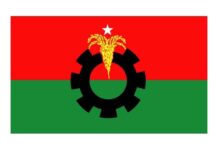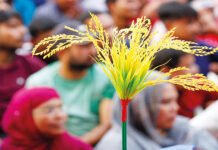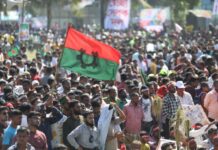At Least Two People Were Killed and Hundreds Were Detained as Political Turmoil Deepened
By SYED ZAIN AL-MAHMOOD

DHAKA, Bangladesh—Political turmoil deepened in Bangladesh on Wednesday as police cracked down on protesters, shooting dead two people and detaining hundreds, while the authorities obtained a court order barring the media from reporting on an opposition leader’s speeches.
Tensions have been rising since the main opposition Bangladesh Nationalist Party and its allies called for mass demonstrations on Monday, the anniversary of last year’s contentious national elections boycotted by the opposition and won by the governing Awami League.
Two activists of the BNP were shot dead by police in the southern town of Noakhali on Wednesday evening, police and doctors said. Ilyas Sharif, the local police chief, said officers opened fire after protesters attacked police.
Monday’s demonstrations were banned by the government, prompting the opposition to call for an indefinite blockade of roads, railways and waterways leading to the capital, Dhaka.
Police said they have rounded up hundreds of activists in a bid to contain the protests that have led to the death of at least six protesters since Monday.
The opposition accuses the police of siding with the ruling party and using excessive force against opposition activists. The police say they are trying to maintain security
Also on Wednesday, Awami League lawyers sought and received a gag order barring the media from publishing statements by Tarique Rahman, the eldest son of BNP leader Khaleda Zia. Since earlier this week, the authorities haven’t permitted Ms. Zia to leave her office in Dhaka, and other senior party leaders have been arrested.
Mr. Rahman, who is also the BNP’s senior vice chairman, lives in London.
The government has in the past issued dozens of arrest warrants against Mr. Rahman and filed corruption charges against him. Mr. Rahman couldn’t be reached for comment. He has denied corruption charges against him in the past. The BNP says the government’s allegations are an effort to silence a strident critic.
The government denies that it is detaining Ms. Zia, saying it has provided Ms. Zia with “enhanced security” at her own request. The opposition says the government is unlawfully preventing her from leading the protests.
Analysts say political instability could hurt Bangladesh’s developing economy, especially its $24 billion-a-year garment industry, which produces clothes for brand-name stores in the West.
Shahdin Malik, a Bangladeshi lawyer, said the gag order on remarks by Mr. Rahman was unprecedented. “It’s certainly unusual for the media to have a blanket ban on reporting the speeches of a political leader, even if there are cases pending against him or even if he has been convicted,” he said.
In another move, criticized by human rights activists, police arrested the chairman of Ekushey Television, the country’s oldest private TV channel, a few hours after the channel had broadcast a speech by Mr. Rahman.
Abdus Salam, the chairman of ETV, was picked up by police as he was leaving his office on Tuesday, journalists at the station said.
Masudur Rahman, a police spokesman, said Mr. Salam had been detained in connection with a case filed in November by a woman who accused the channel of allegedly broadcasting pornographic images of her.
Majumdar Jewel, news editor at ETV, said the channel had broadcast blurred images in an investigative program in keeping with its editorial standards.
“We believe this will have a chilling effect on the media, especially since we have done nothing that goes against journalistic ethics,” Mr. Jewel said.
Yunus Ali Biswas, a lawyer for Mr. Salam, said his client had done nothing wrong. He said the ETV chairman wasn’t involved in day-to-day programming, adding that the case filed under the pornography law didn’t name him as a defendant.
“It’s absolutely unjustifiable to arrest my client two months after the fact, in a case where he wasn’t named,” he said.
ETV’s signal disappeared from cable networks shortly after it broadcast the opposition leader’s speech on Monday night, with critics accusing the government of putting pressure on cable operators to blackout the channel. The government denied involvement. The cable operators’ association declined to comment.
Source: WSJ









